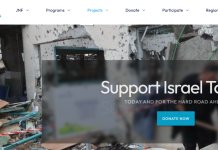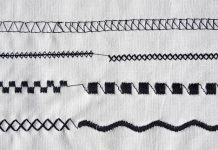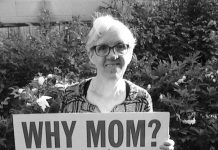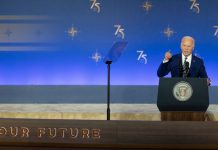Związek nauczycieli we wschodnim Ontario ostrzega swoich członków, że mogą spotkać się z karą dyscyplinarną głosząc szereg opinii, od społecznie konserwatywnych po apolityczne i pozornie nieszkodliwe czytamy na stronach The True North.
Federacja Nauczycieli Szkół Średnich w Ontario, działająca lokalnie przy Radzie Szkolnej Okręgu Limestone (LDSB) w Kingston, wysłała swoim członkom „aktualizację członkowską” ostrzeżenie o potencjalnej karze za naruszenie praw człowieka, jeśli nauczyciele będą używać terminów takich jak “blind spot” lub informować studenta, aby odłożył telefon.
E-mail uzyskany przez True North i opublikowany w całości poniżej został wysłany przez głównego negocjatora okręgu 27 Federacji Nauczycieli Szkół Średnich w Ontario, Johna Vince’a do członków związku w grudniu ubiegłego roku.
W e-mailu Vince informuje członków związku, że niektóre poglądy powszechne w Stanach Zjednoczonych i Wielkiej Brytanii są niedozwolone w Ontario i że wyrażanie zakazanych poglądów może skutkować karą dyscyplinarną.
„Wspieranie tak zwanych „prawicowych” poglądów politycznych (przykład: prawa rodzicielskie)” czy „pogląd, że istnieją tylko dwie płcie” – to jedne z przykładów.
Nauczyciele nie mogą wyrazić opinii, że kobiety transpłciowe , powinny być wykluczone z kobiecego sportu, mimo że badania wykazały, że kobiety transpłciowe mają nad kobietami biologicznymi niesprawiedliwą przewagę.
A także, że transpłciowi mężczyźni z penisami mogą sprawić, że niektóre kobiety poczują się niekomfortowo w przebieralniach, mimo że znaczna liczba kobiet wspiera przestrzenie przeznaczone wyłącznie dla biologicznych kobiet.
Nauczycielom powiedziano, że nie powinni wyrażać opinii, iż pewne praktyki kulturowe są lepsze od innych, podając jako to, że prawo zachodnie jest lepsze od prawa szariatu – islamskiego fundamentalistycznego kodeksu prawa lub że „metoda naukowa jest lepsza od innych sposobów poznania” .”
Vince sugerował, że nauczyciele nie powinni mówić rodzicom, jeśli przyłapią ich dziecko na wciąganiu kokainy lub innej nielegalnej substancji.
Co więcej, nauczycielom powiedziano, aby nie mówili uczniom, aby odłożyli telefon, ściągnęli kaptury i nie pytali się uczniów, dlaczego przybyli na zajęcia zbyt późno.
Używanie popularnych słów i wyrażeń, takich jak “long time no see,” “blindspot,” “hit it out the park,” “no can do,” “ladies and gentlemen,” czy “Aboriginal” również może skutkować karą .
Angażowanie się w zakazaną mowę może skutkować nałożeniem kary dyscyplinarnej przez zarząd szkoły i możliwym naruszeniem Kodeksu praw człowieka prowincji Ontario.
Na stronie internetowej rady szkoły pracownicy i uczniowie mogą złożyć skargę dotyczącą naruszenia praw człowieka w stosunku do nauczyciela. W przypadku incydentu między uczniem a nauczycielem skargi kierowane są do Pełnomocnika ds. praw człowieka i równości. Obecnym dyrektorem ds. praw człowieka i równości jest Yusuf Abdulkareem.
oto tekst emailu w oryginale
We are seeing an increase in the number of members who are the subject of a Human Rights code complaint. Students, and some staff and/or community members, are using the ‘QR-code’ complaint process. We have grave concerns that the process allows anonymous complaints. Further, someone who is not even in a school, or connected to a school, can simply access the Board’s website and make an anonymous complaint for malicious purposes. Regardless of whether a complaint is anonymous or not, it often sparks a ‘fact-find’ investigation involving staff and students. For spurious allegations, this is causing undue trauma and upset.
There are some speech/actions that members may not know could result in discipline in Limestone District School Board (LDSB) worksites. In other jurisdictions, such as the U.S.A or the U.K. (who’s media many consume) some of this speech is allowed whereas some is not allowed in Ontario, and members may not know this. We have asked the Board to inform staff of what speech cannot be said in Ontario and/or the LDSB and they have indicated they are working on this. In the absence of this training, below are some examples of speech and/or actions that if uttered/performed in a worksite could result in discipline.
- The opinion that women who have gone through male puberty should not participate in women’s sport;
- The opinion that women who have male reproductive organs (ex. a penis) may make some women uncomfortable in change rooms or washrooms;
- The notion that there are only two genders;
- Disagreement that someone could be born in the wrong body or that we all have a ‘gender-soul’;
- The idea that keeping secrets from parents/guardians is bad;
- Using many euphemisms and idioms such as: “long time no see”, “I’d get lynched”, “blind spot”, “hit it out of the park”, “no can do”, etc..;
- Words that center out a student such as: “get off your phone”, “pull your hoody down”, “why are you thirty (30) minutes late”, “what is the answer to this question”, etc…;
- Sharing with parents anything about a student not directly related to the curriculum you are teaching: (examples: “congratulations on your child being in the school play”, “I saw your child snorting a white powder”, “your child was vaping in my class”, etc…);
- Referring to a person using labels: (examples: don’t’ label someone as “deaf” but rather as “a person who is experiencing hearing impairment”, don’t label someone a “murderer” but rather “a person who experienced ending another person’s life”);
- Gendered language such as: “boys and girls” or “guys” or “ladies and gentlemen”;
- Saying ‘Aboriginal’ since the prefix ‘ab’ means ‘non’ and could be interpreted to mean “non-original” to Turtle Island;
- Teaching certain topics in Indigenous Art (NAC) or Indigenous English (NBE) if you are not Indigenous: examples: the Medicine Wheel, Getting to know our Plant relatives, corn mat weaving, Getting to know the Harvest Moon, beading, etc;
- Supporting a so-called “right wing” political view (example: Parental rights);
- The idea that certain cultural practices are superior to others (examples: The Scientific Method is superior to other ways of knowing, Western Law is superior to Sharia Law, etc…);




























































